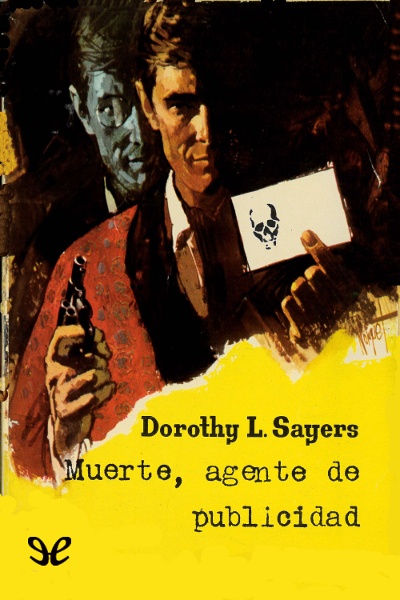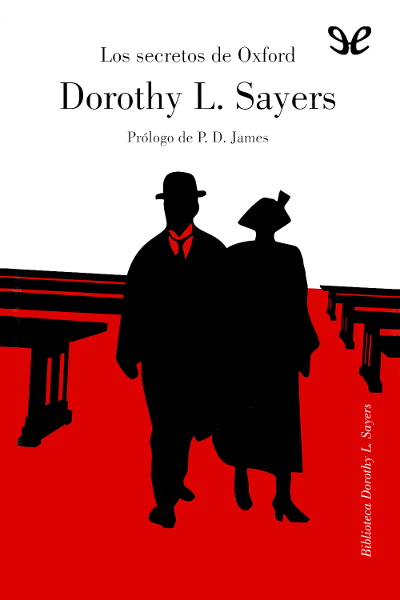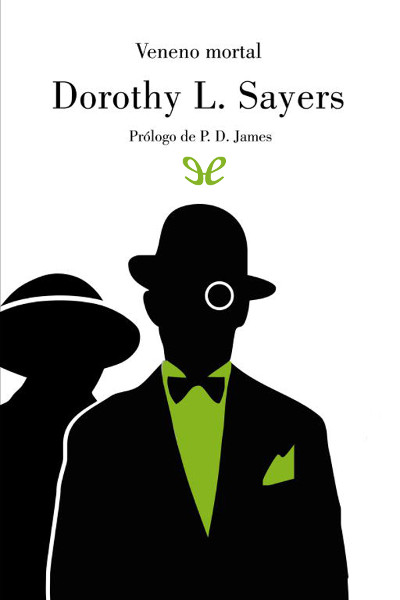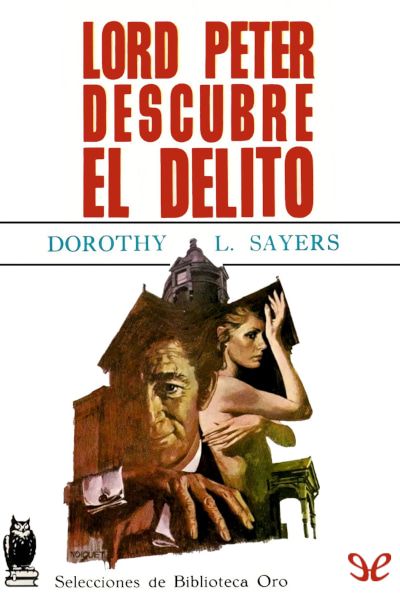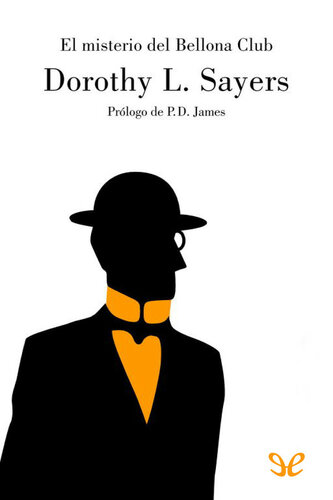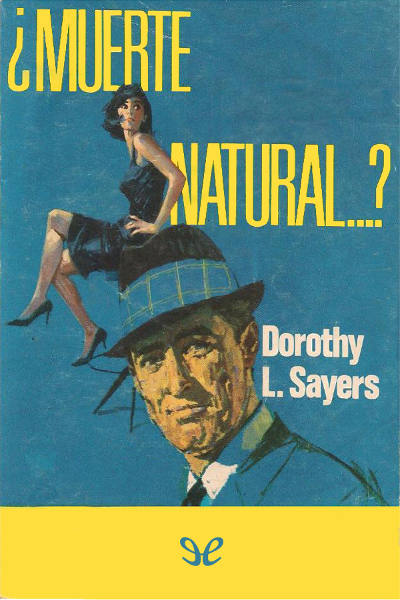oleebook.com
Lord Peter Wimsey 01 - Whose Body? de Dorothy L. Sayers
de Dorothy L. Sayers - Género: English
Sinopsis
In the debut mystery in Dorothy L. Sayerss acclaimed Lord Peter Wimsey series, the case of a dead bather draws Lord Peter into the first of many puzzling mysteries
Lord Peter Wimsey spends his days tracking down rare books, and his nights hunting killers. Though the Great War has left his nerves frayed with shellshock, Wimsey continues to be Londons greatest sleuthand hes about to encounter his oddest case yet. A strange corpse has appeared in a suburban architects bathroom, stark naked save for an incongruous pince-nez. When Wimsey arrives on the scene, he is confronted with a once-in-a-lifetime puzzle. The police suspect that the bathtubs owner is the murderer, but Wimseys investigation quickly reveals that the case is much stranger than anyone could have predicted. Published in 1923, during detective fictions golden age, Whose Body? introduced a character and a series that would make Dorothy L. Sayers famous. To this day, Lord Peter remains one of his genres most beloved and brilliant characters. This ebook features an illustrated biography of Dorothy L. Sayers including rare images from the Marion E. Wade Center at Wheaton College.
Libros Recomendados - Relacionados
Reseñas Varias sobre este libro
What tremendous fun! No wonder Sayers is considered one of the "Queens of Crime" alongside Agatha Christie.
Assigning a motive for the murder of a person without relations or antecedents or even clothes is trying to visualise the fourth dimension admirable exercise for the imagination, but arduous and inconclusive.
The mystery in this is decent, but probably not that remarkable to anyone who's got a few mysteries under their belt. A dead body turns up in a bathtub... but whose body? How did he get there? Why is he wearing the glasses of a much older man? Why does he have manicured nails but horrific dental hygiene (no, it's not 'cause he's British!)? And, of course, who killed the poor fellow?
No, what makes this book shine are the characters and fabulous dialogue. Whose Body? is a hundred years old now and the humour still hits perfectly. Lord Peter Wimsey and his interactions with the other characters are so entertaining. From his chiding of Parker's tendency to explain away logical conclusions to the whole Jeeves and Wooster vibe I got from him and Bunter. And he is quite a comical character in himself.
Oh, yes, said Lord Peter, but most of us have such dozens of motives for murderin all sorts of inoffensive people. Theres lots of people Id to murder, wouldnt you?
Heaps, said Lady Swaffham. Theres that dreadful perhaps Id better not say it, though, for fear you should remember it later on.
Well, I wouldnt if I were you, said Peter, amiably. You never know. Itd be beastly awkward if the person died suddenly to-morrow.
I will definitely read more of this series.2024 classics mystery-thriller237 s10 comments Adina1,056 4,315
While I was searching for more books narrated by Mark Meadows I found this one which was already on my shortlist so I decided to start it right away. Whose Body? Is the 1st volume in the famous Lord Peter Wimsey series written by Dorothy L. Sayers.
The Lord has a strange hobby. He s to investigate murders which is may times inconvenient for the police force. This time he finds out about an unknown naked body who appeared dead in the bathroom of one of his acquaintances. At the same time, his inspector friend investigates the disappearance of a lawyer. Are those two events connected? Well, you need to read the novel to find out.
The novel was written in 1923 so I thought the writing style and the humour a bit outdated but I still enjoyed it well enough. I plan to continue with the series in the near future when I feel reading a cozy mystery to get me through the day.
historical-mistery199 s Jack8 13
The very first Lord Peter Wimsey novel, and thus the genesis of one of the most engaging characters I've ever encountered, literary or otherwise. Actually, make that at least two (since Bunter is equally astounding), and maybe three (because the Dowager's quite engaging, too). In rereading this, I found myself surprised at how solid the characters are at the very beginning of the series; they are essentially the same fully-realized people they are ten books later, though we only see certain facets of them here. More dimension follows later.
There is so much that I love about this book, including the very first page; its first two words, and indeed the first two words Wimsey ever utters to us, are "Oh, damn!" Just a few lines down is the sentence that encapsulates so much about Sayers's writing, the perfect litmus test for the Lord Peter series: "His long, amiable face looked as if it had generated spontaneously from his top hat, as white maggots breed from Gorgonzola." Either you find that quirkily poetic and want to read more, or you should be reading something else entirely.
(Curiously, this is only the first of no fewer than three completely random and incidental mentions in this volume of that particular cheese. I have to assume that Sayers was a fan.)
The actual mystery is brilliant: a man goes into his bathroom one morning to find a naked corpse in the tub, wearing nothing but a pair of golden pince-nez. He has no idea who the man might be or how he came to be dead in his tub. Meanwhile, a financial bigwig's gone missing, and while he bears a superficial ness to the corpse found across town, they are clearly not one and the same.
But as satisfying as the cases are, more satisfying by far is the chance to meet Lord Peter as he babbles foolishly in the way only the very rich can get away with, picking apart the mysteries while quoting poetry in between snifters of Napoleon brandy and bidding on early editions of Dante. And early-'20s England is painted beautifullywhich is not entirely surprising, given that the book was written in, erm, early-'20s England. Quite.
There are some rough edges, to be sure (the odd temporary shifts into second person perspective leap to mind), but they are ultimately very forgivable in a first novel and almost seem charming in light of the later works.
If you'd to give it a whirl before expending any energy to get an actual copy of the book, the novel is now public domain, and appears in its entirety here: [http://digital.library.upenn.edu/wome...]. And the preface is quite good, too.143 s Mitch229 215
Oh, I feel so badly how much I disd this book. As a mystery genre fan and avid reader of Agatha Christie, I thought for sure I would enjoy the much-reccomended Lord Peter Wimsey series by Dorothy L. Sayers. But alas, I found myself bored and annoyed by the personalities of the characters.
The plot seems interesting enough: a random body of a man wearing nothing but a pair of glasses shows up in a bathtub. Who is he and how did it get there? Book collector Peter Wimsey is on the case! To be honest I couldn't bring myself to complete this book. The characters were much too arrogant for my taste and the whole take on the mystery solving seemed primitive. Not to mention constant anti-semetic comments littering much of the book. I just was very turned off by it all.
Some people consider this an early mystery masterpiece. Me? I pass.
123 s Melindam742 352
Time to meet Lord Peter Wimsey, archetype of amateur gentleman detective & his sidekick, the invaluable valet Bunter.
Bunter!
Yes, my lord.
Her Grace tells me that a respectable Battersea architect has discovered a dead man in his bath. Indeed, my lord? Thats very gratifying.
Very, Bunter. Your choice of words is unerring. I wish Eton and Balliol had done as much for me."
Update 13/03/2017
I did not really have any expectations, this book having been my first from Dorothy L. Sayers, just some curiosity of how she compares to my beloved Agatha Christie. Having said that much, I was still pleasantly surprised at how much enjoyed reading it.
I loved the all characters: Lord Peter Wimsey, Bunter, detective inspector Parker & the Dowager Duchess of Denver (Lord Peter's mother).
In the beginning, Bunter read very much Jeeves to Lord Peter's Bertie Wooster:
Lord Peter Wimsey: "Its much easier to work on someone elses job than ones owngives one that delightful feelin of interferin and bossin about, combined with the glorious sensation that another fellow is takin all ones own work off ones hands."
Bunter: "Yes, Mr. Graves, its a hard life, valeting by day and developing by nightmorning tea at any time from 6.30 to 11, and criminal investigation at all hours."
"Im off. With a taxi I can just Not in those trousers, my lord, said Mr. Bunter, blocking the way to the door with deferential firmness. Oh, Bunter, pleaded his lordship, do let mejust this once. You dont know how important it is. Not on any account, my lord. It would be as much as my place is worth.
Their exchanges are funny and a nice comic relief, but as the story continues both characters -along with DI Parker - gather depth. Nothing too elaborately detailed, but rather through some nice little touches you learn that a seemingly flippant, offhand Lord Peter served in WW I and suffered a nervous breakdown due to shell shock from which he never recovered completely. Sometimes he has relapses, especially if his investigations - here- lead to someone (even though a murderer) losing their life.
We also learn that Bunter served under Lord Peter's command & during his relapses he takes care of him conscientiously & effectively.
Detective Parker seems to be another sidekick to Lord Peter.
It affords me, if I may say so, the greatest satisfaction, continued the noble lord, that in a collaboration ours all the uninteresting and disagreeable routine work is done by you.
He is thorough, cautious, clever & well-educated (reminds me a bit of Lt. Arthur Tragg in the Perry Mason series). He s reading biblical commentary as a chill-out before going to sleep.
One of the most interesting parts of the book was a conversation between Lord Peter & Parker which highlights their characters even more:
Look here, Peter, said the other with some earnestness, suppose you get this playing-fields-of-Eton complex out of your system once and for all. There doesnt seem to be much doubt that something unpleasant has happened to Sir Reuben Levy. Call it murder, to strengthen the argument. If Sir Reuben has been murdered, is it a game? and is it fair to treat it as a game? Thats what Im ashamed of, really, said Lord Peter. It is a game to me, to begin with, and I go on cheerfully, and then I suddenly see that somebody is going to be hurt, and I want to get out of it. Yes, yes, I know, said the detective, but thats because youre thinking about your attitude. You want to be consistent, you want to look pretty, you want to swagger debonairly through a comedy of puppets or else to stalk magnificently through a tragedy of human sorrows and things. But thats childish. If youve any duty to society in the way of finding out the truth about murders, you must do it in any attitude that comes handy. You want to be elegant and detached? Thats all right, if you find the truth out that way, but it hasnt any value in itself, you know. You want to look dignified and consistentwhats that got to do with it? You want to hunt down a murderer for the sport of the thing and then shake hands with him and say, Well playedhard luckyou shall have your revenge tomorrow! Well, you cant do it that. Lifes not a football match. You want to be a sportsman. You cant be a sportsman. Youre a responsible person. I dont think you ought to read so much theology, said Lord Peter. It has a brutalizing influence.
When finding out who the murderer is, Lord Peter gets also thrown into a moral dilemma The murderer, though not a nice person, as such, is a very useful member of society, who does some good work & is charitable that brings on one of his relapses.
You can guess who the perpetrator is relatively quickly. Sayers places her clues inconspicuously, but they can be discovered without much difficulty and yet it does not really diminish the merits of the book. It stays enjoyable from beginning to end.anglophilia crime-detective-fiction86 s Anne4,266 70k
This kind of reminds me of a cross between Agatha Christie's Poirot and PG Wodehouse's Jeeves series.
Not as interesting mystery-wise as Poirot and not as funny as Jeeves.
The gist is that Lord Peter Wimsey is a gentleman detective (much to the annoyance of his older brother) who has a faithful valet and a friend in the police department.
This time around his mother directs him toward a case involving the missing husband of one of her childhood friends.
There's a whole case of mistaken identity when a naked dead man turns up in a random bathtub and the police think it is the body of the missing man. Lord Peter, however, realizes not all is as it seems.
There is much more to the story, of course.
I kept zoning out during the narration and had to keep backing it up. I'm not really sure why. Perhaps I just wasn't in the right mood for a classic detective story?
I don't know.
I wasn't all that impressed but since it's just the first book in the series, I'll keep going.
Wanda McCaddon narratoraudio crime mystery ...more92 s Jaline444 1,765
Dorothy L. Sayers wrote mysteries (notably, the Lord Peter Wimsey series) from the 1920s through the early 1950s. She also did translations, such as Dantes Inferno. She was a controversial writer of her time and a very accomplished one. From letters she wrote, she had begun working out her plot for Whose Body? in 1920-21 and the book was published in 1923.
Lord Peter Wimsey has found his own critics as a character. He was in WWI and experienced shell shock with a consequent fear of responsibility due to his regiment being decimated during the war. He comes off as garrulous at times due to nervous tension, and all the quirks of his personality are due to his war experiences. At the same time, he is aware of his life of privilege and wants to do something meaningful; thus, his hobby of investigating crime cases.
The Dowager Duchess of Denver, Lord Peters and Lord Wimseys (Gerald) mother, is shrewd enough to know that if her son is to fully recover, his hobby could be a good avenue for getting there. When she learns that the body of a man turns up in the tub of an architect she knows, she lets Peter know about it and asks him to see if there is anything he can do.
Detective Sugg, an arrest-whoever-is-handy sort, is in the process of trying to find proof that the architect and his house maid contrived to hide this crime in plain view. Lord Peter disagrees, and his friend with Scotland Yard, Charles Parker, sees it the same as Lord Peter. Meantime, Parker also has a case that just came up: a well-known Jewish financier named Sir Reuben Levy has disappeared.
Thus begins the story that winds its way through many different households and settings. The writing is definitely brilliant and, aside from Lord Peters own thought processes becoming the chief red herrings, those same wayward thought processes get the job of solving the crime done.
Bunter, Lord Peters manservant and one of his Seargents in the war, is a photography buff and aids in both finding and eliminating possible leads. Parker takes up a lot of Lord Peters slack when Lord Peter experiences agitation at getting too close to possible suspects. At one point, Parker lectures him that he cant treat crime solving a football match at school; that it isnt a game and he must get over his notion of giving suspects a sporting chance.
Lord Peter, at one point, does have an episode with flashbacks to the war. It is when he believes he has discovered a guilty person and is reluctant, yet driven, to do the right thing.
The depth of the characters is one of the chief features of this book. While they may awkwardly hide behind academics or sheer verbal frivolity at times, there are reasons (if no excuses) for these excursions. I enjoyed the psychological aspects of the characters as much as I did the mystery itself. This initial offering in the series has made me very curious and I look forward to getting to know these characters further in the second book of the series.xx2017-completed67 s Jason KoivuAuthor 7 books1,328
British Jason #1: Jolly good book, what?
British Jason #2: Oh, rather!
British Jason #1: I say, how much longer do you suppose we can keep this up?
British Jason #2: Not long, old bean. I've run out of stereotypical Brit words and this ridiculous accent is doing me head in!
I almost filed this all up in my PG Wodehouse shelf. The similarities in style, setting and character are striking. There's a somewhat daffy lead in Lord Peter Wimsey, though he's clearly got more on the ball than Bertie Wooster. There's the taciturn Parker, just a little looser and given more freedom than the butler Jeeves. After all, Parker is a police investigator and his own man. Even the time and place, 1920s England, hits the Jeeves/Wooster mark.
The mystery of who dunnit wasn't exactly mind-boggling. I suspected the culprit almost the moment he hit the stage. But this mystery doesn't seem to care for the diabolical plot as much as others in the genre. Dorothy Sayers appears to be more interested in developing a deeper character. No, no one between the pages of Whose Body? is coming close to Dostoyevsky's Raskolnikov, but Sayers seems more concerned with her whys as opposed to her whos.
For instance, the reasoning behind Lord Peter's desire to catch criminals comes into question more than once through the book. His past reaches into the present to color the proceedings. These are nice touches that you don't tend to get with Agatha Christie.
comedy crime detective ...more60 s Zain1,617 196
Whos That Naked Man In My Bathtub?
Lord Peter Wimsey is called upon for help, by his friend, Inspector Parker. An unknown, naked man is found in someones house, upstairs in the bathtub!
The local police are only interested in arresting the owner of the house and hopefully close the case.
Fortunately, for the home owner, Lord Peter believes there is more to the crime than the eyes can see.
He quickly places his thinking cap on his head, and allows his brain to simmer and boil until he is able to feed Parker his outcome of his opinion.
This is the first book by Dorothy L. Sayers I have read and it helped make me a lover of British golden mysteries. I hope it works the same magic for you.
Four stars!
Autor del comentario:
=================================
